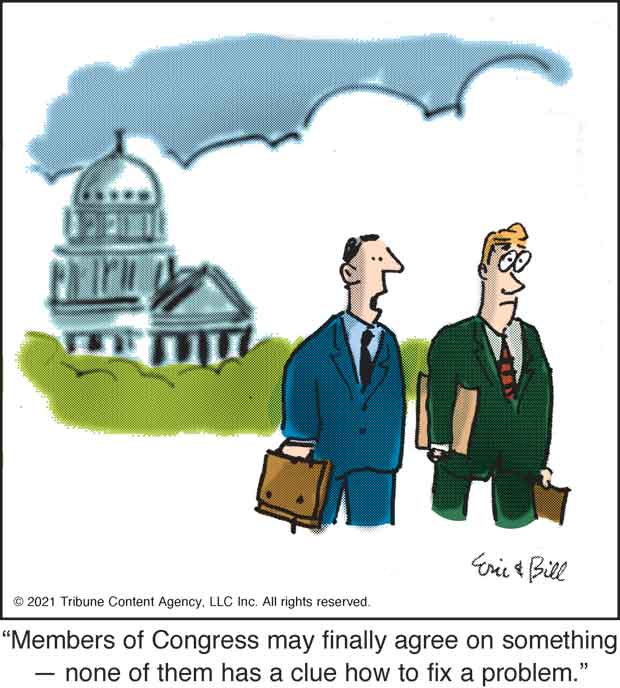
On George W. Bush’s watch, for example, federal spending exploded to nearly twice what it had been under Bill Clinton. In 2009 and 2010, to take another example, Tea Party rallies were driven by grass-roots outrage at Washington’s fiscal recklessness under Barack Obama and a Democratic Congress. But once Republicans were back in the driver’s seat, with Donald Trump in the White House and GOP majorities in both houses of Congress, their extravagance made a mockery of everything Republicans had said about the need for fiscal discipline. And that was before the pandemic.
However, there was one notable exception to the Republican habit of talking the talk of fiscal sobriety but not walking the walk: the party’s stance against earmarking.
Earmarks — a.k.a. pork barrel spending — are provisions in legislation that direct funds to specific local recipients, bypassing the normal criteria for allocating funds.
In the Clinton and Bush years, earmarks exploded, from fewer than 1,000 in 1996 to nearly 14,000 in 2005, according to Brian Riedl, a fiscal policy scholar at the Manhattan Institute. Corruption and scandals related to earmarks exploded, too. Eventually the GOP turned against earmarking.
After the 2010 midterm elections, when Republicans gained a sizable majority in the House, they adopted a strict ban against earmarking. In his State of the Union address early in 2011, Obama got on board and vowed to veto any bill containing earmarks: "The American people deserve to know," he said, "that special interests aren’t larding up legislation with pet projects."
That ban on earmarks 11 years ago was a rare and genuine fiscal reform. But it broke down last year, when the 117th Congress was sworn in under all-Democratic control. Pork barrel line items returned to the federal budget — and many Republicans were happy to resume bellying up to the trough. Just how many became clear last Wednesday, when the House GOP caucus voted against a proposal to restore the ban on earmarks when Republicans return to majority status in their chamber next month. The proposal was made by Representative Tom McClintock of California, who urged his fellow Republicans to "make a dramatic, concrete, and credible statement that business as usual as Washington is over" by once again pulling the plug on "the wasteful and corrupting practice of congressional earmarking."
But when the caucus voted, only 52 Republicans voted for McClintock’s proposed rule, while 158 were opposed. Kevin McCarthy, who hopes to become the next House speaker, made no effort to block the Republican rush back to earmarking.
As a percentage of all federal outlays, the cost of earmarks may seem trifling: They account for less than $10 billion of the more than $6 trillion (!) Washington will spend this year. But earmarks make it easier to pass the massive spending bills that are crippling the nation with debt. Bloated measures garner more support when wavering members can be won over with line items custom-tailored for their state or district.
That was why the late senator Tom Coburn of Oklahoma, a principled fiscal conservative, used to call earmarks "the gateway drug to corruption and overspending." For one brief shining moment, Republicans could be counted on to say no to that particular variety of Washington intoxicant.
It didn’t last.
Jeff Jacoby is a columnist for The Boston Globe, from which this is reprinted with permission."


 Contact The Editor
Contact The Editor
 Articles By This Author
Articles By This Author